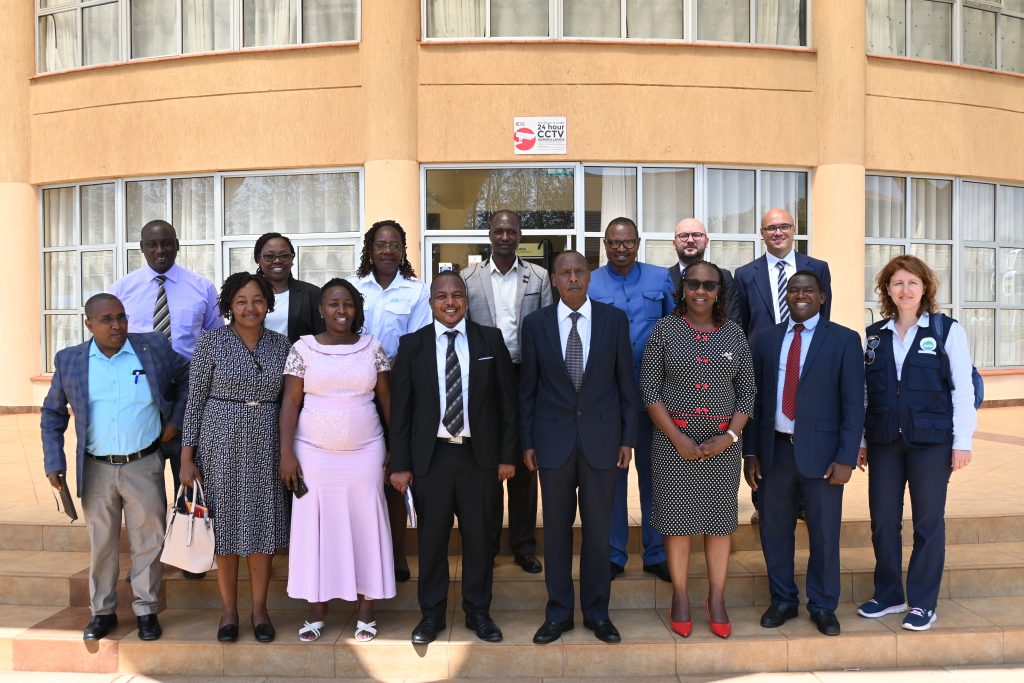The primary objective of this initiative is to enhance the socio-economic well-being of local communities, with a specific focus on collaborating with 30 dairy agri-producer groups and benefiting over 15,000 farmers.
The agri-producer groups (cooperatives, community-based organizations and self-help groups) will receive valuable support through governance and management trainings, the provision of ICT tools and digital record-keeping skills, empowerment to develop and execute sustainable business models, and access to matching grants to bolster their storage and processing capabilities.
Farmers, on the other hand, will be furnished with subsidized recovery kits for fodder establishment and preservation, receive agri-business training, and be granted resources for the development of agricultural enterprises. Additionally, they will gain access to agricultural extension information through radio broadcasts and have opportunities for benchmarking tours to enhance their skills.
These interventions draw inspiration from the resounding success of the Maziwa project in Meru County. Funded by the Italian Agency for Development Cooperation and spanning 42 months until its conclusion in September 2021, the Maziwa project substantially impacted milk production and management. Through knowledge acquisition in cattle management, 1,800 farmers experienced increased income, greater financial stability, a remarkable 46% boost in milk production, and increased investment in their businesses. Five dairy agri-producer groups witnessed a quadruple increase in daily production, while milk wastage decreased by an impressive 61%. The project's ripple effects extended to 54% of farmers gaining improved access to National Health Insurance Funds, a 51% increase in educational access, and a 55% improvement in food accessibility, highlighting the dairy value chain's development potential.
Anticipated outcomes of the Economic Recovery to the Impact of COVID-19 on agri-food value chain in Kenya project include a 70% increase in milk production, a 50% reduction in milk post-harvest losses, a minimum 30% increase in household income for 70% of participants, the creation of 500 value chain-related jobs, and the generation of at least €2.5 million by catalyzing production, value addition, and trade activities through the allocation of matching grants.
The event has been graced by Mario Brataj, Programme Officer Economic and Private Sector Development at the Italian Agency for Development Cooperation (AICS), Nairobi. Other dignitaries attending included; Prof. Kiplagat Kotut, Deputy Vice Chancellor, Embu University, Hon Joseph M'eruaki M'uthari, Chairman, Kenya Plant Health Inspectorate Service (KEPHIS), Hon. John Nyaga - County Executive Committee (CEC) for Agriculture, Livestock, Blue Economy and Cooperatives - Embu County, Mr. Mugo Mate - Chairman Kenya National Chamber of Commerce Industry - Embu and Nada Perovic - AVSI Head of Business Development and Projects Department.

Behind, far Right, Andrea Bianchessi, Mario Brataj, Hon. Joseph M'eruaki, Geoffrey Kimutai, Joan Nyakowa, Bernadette Mutinda, Prof. Jackson Wachira Muthengia
AVSI believes in the multi-sector approach that has shown its efficiency in different contexts. Through projects like this, NGOs, donors, businesses and the authorities combine efforts to promote development and we are thrilled to see how it will be implemented in the dairy value chain. For AVSI development means, generating a positive change by promoting self-awareness in everyone involved while continuously ensuring learning and sharing.
Romana Koech, AVSI Kenya Country Representative
The Economic Recovery project aims to create 500 jobs within the value chain. Youth and women will be trained on entrepreneurship and how to develop sustainable business models. E4Impact will assist them in the development of businesses within the dairy value chain and the creation of networks and market linkages. We will also train 30 cooperatives and agri-producer groups to develop business plans and models with high social-environmental impact. This will play a big role in ensuring sustainable impact as a core aspect of E4Impact
David Cheboryot, Director, E4Impact Entrepreneurship Centers
